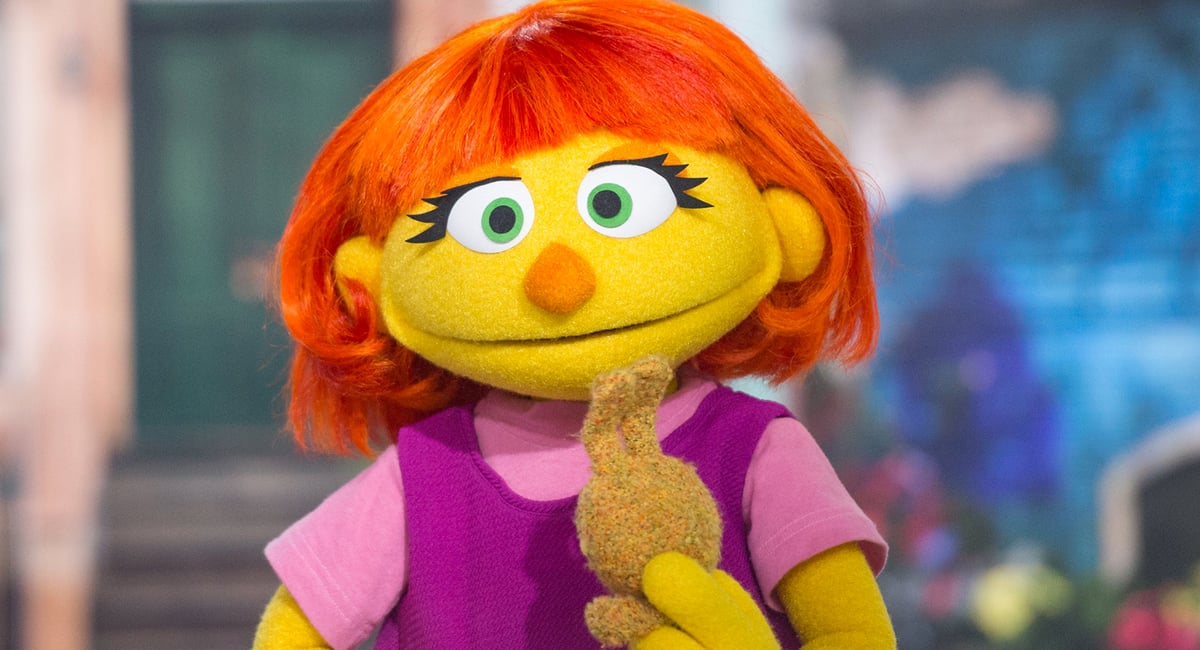Sesame Street, the ever-popular and beloved children’s show, broke ground in 2017 when it introduced Julia, a young girl with autism, to its main roster of puppets. Julia immediately became beloved by audiences and was important representation for children who rarely get to see themselves depicted onscreen. However, now the Autistic Self Advocacy Network has announced that it will be end its years-long partnership with Sesame Street due to the show’s continued work with Autism Speaks, a deeply harmful organization.
The Autistic Self Advocacy Network pointed out Sesame Street PSAs that call for early screenings of children and lead to Autism Speaks’ website and their 100 Day kit. In a statement, ASAN said, “The 100 Day Kit encourages parents to blame family difficulties on their autistic child … and to view autism as a terrible disease from which their child can ‘get better.’ It recommends compliance-based ‘therapies’ and pseudoscientific ‘autism diets’ but fails to educate families about communication supports. It even instructs parents to go through the five stages of grief after learning that their child is autistic, as they would if the child had died.”
Referring to an early campaign, “See Amazing,” where Sesame Street introduced Julia to the world, ASAN said, “Too often, parents of autistic children are bombarded with terrifying messages. The See Amazing initiative was groundbreaking because it offered an alternative to these stories. It let families know that their autistic children are amazing, can live happy lives and are deserving of love. Now, Sesame Street has decided to let See Amazing become just another vehicle for Autism Speaks to spread the same old toxic ideas.”
Autism Speaks has frequently come under fire, rightfully so, for insisting they can find a cure for autism and for depicting autism as a terrible disease. In 2013, Forbes writer Emily Willingham wrote a piece titled “Why Autism Speaks Doesn’t Speak For Me” that deftly outlines the problems inherent with Autism Speaks, from their insistence that autism will cause marriages to fail to saying that parents of autistic children are living “… moment-to-moment. In anticipation of the child’s next move. In despair. In fear of the future.”
This isn’t the first time ASAN has spoken out against Autism Speaks, either, having even put out a PSA against Autism Speaks in the past. If autistic advocates, and those who are actually living with autism, are speaking against how bad Autism Speaks is, then there’s a problem there that those who support the group are unwilling to address.
It is disheartening that Sesame Street has partnered with Autism Speaks. Hopefully, the very public pushback they’re receiving for the decision will cause them to reconsider—if not for themselves, then for the children and families who turn to Julia for important representation. If Sesame Street wants to be a leader, then it needs to act like one.
(image: PBS)
Want more stories like this? Become a subscriber and support the site!
—The Mary Sue has a strict comment policy that forbids, but is not limited to, personal insults toward anyone, hate speech, and trolling.—








